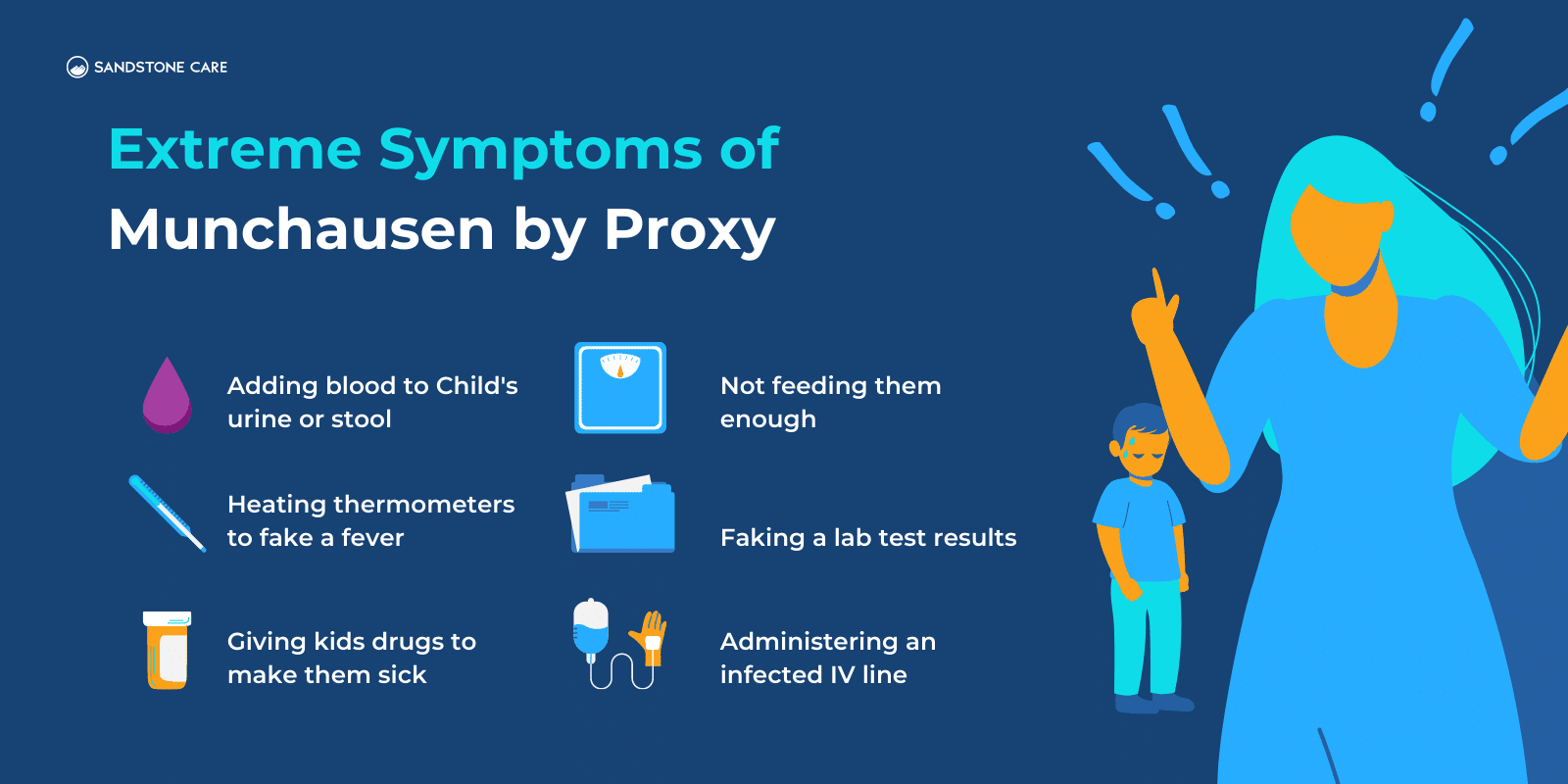Movies about Munchausen by Proxy have captivated audiences worldwide, offering a chilling yet thought-provoking exploration of psychological manipulation and deception. This rare but deeply unsettling disorder has inspired filmmakers to create powerful narratives that delve into the complexities of human behavior. If you're intrigued by psychological thrillers that explore the darker side of human relationships, this article is for you.
Munchausen by Proxy (MBP), also known as Factitious Disorder Imposed on Another, is a psychological condition where a caregiver fabricates or induces illness in someone under their care. While the term might not be familiar to everyone, its portrayal in movies has brought it into the spotlight. Movies about Munchausen by Proxy not only entertain but also educate viewers about the complexities of this condition.
In this article, we will explore some of the most compelling movies that tackle this theme. We'll analyze how filmmakers portray MBP, the impact it has on the characters involved, and the broader implications for society. Whether you're a film enthusiast or someone interested in psychology, this article will provide valuable insights into this intriguing subject.
Read also:Birthday Horoscope March 3 Unlock The Mystical Secrets Of Your Zodiac Sign
Table of Contents
- What Is Munchausen by Proxy?
- Movies About Munchausen by Proxy
- Psychological Impact of Munchausen by Proxy
- Real-Life Cases in Films
- Common Themes in MBP Movies
- The Role of Caregivers
- The Victim's Perspective
- Societal Implications
- Diagnosis and Treatment
- Conclusion
What Is Munchausen by Proxy?
Munchausen by Proxy (MBP) is a psychological disorder where a caregiver, often a parent, intentionally fabricates or induces illness in a dependent individual, typically a child. This condition is classified as a mental health disorder under the DSM-5 and is characterized by deceptive behavior aimed at gaining attention and sympathy from others. The caregiver may go to extreme lengths to create the illusion of illness, including falsifying symptoms, tampering with medical tests, or even causing harm to the victim.
This section will explore the key characteristics of MBP, its causes, and the psychological motivations behind it. Understanding the disorder is crucial for recognizing its portrayal in films and distinguishing fact from fiction.
Movies About Munchausen by Proxy
Several movies have explored the theme of Munchausen by Proxy, offering audiences a glimpse into the complexities of this condition. These films often blend elements of psychological thriller, drama, and tragedy, making them both compelling and unsettling. Below is a list of notable movies that tackle this theme:
The Role of Caregivers
In movies about Munchausen by Proxy, the caregiver is typically portrayed as the central figure. These characters often exhibit manipulative behavior, using their position of trust to deceive medical professionals and loved ones. Some common traits of caregivers in these films include:
- Exaggerated concern for the victim's health
- Reluctance to leave the victim's side
- Knowledgeable about medical conditions and treatments
- Desire for attention and validation from others
These portrayals highlight the psychological motivations behind MBP and shed light on the complex dynamics between caregiver and victim.
The Victim's Perspective
While the caregiver is often the focus of these films, the victim's perspective is equally important. Victims of Munchausen by Proxy often suffer from physical and emotional abuse, leading to long-term psychological effects. Movies about MBP frequently explore the victim's struggle to break free from the caregiver's control and seek help.
Read also:Experience The Ultimate Relaxation At Beaucage Spa Boston
Some common themes in the victim's narrative include:
- Isolation from friends and family
- Difficulty trusting others
- Feelings of helplessness and vulnerability
- Struggles with identity and self-worth
By highlighting the victim's perspective, these films emphasize the importance of early intervention and support systems.
Psychological Impact of Munchausen by Proxy
Munchausen by Proxy has profound psychological effects on both the caregiver and the victim. Caregivers often suffer from underlying mental health issues, such as narcissism or depression, which drive their behavior. Victims, on the other hand, may experience trauma, anxiety, and depression as a result of the abuse they endure.
Research conducted by the American Psychological Association (APA) suggests that early recognition and intervention are critical in mitigating the long-term effects of MBP. Movies about this condition often serve as a catalyst for raising awareness and encouraging discussions about mental health.
Real-Life Cases in Films
Many movies about Munchausen by Proxy are inspired by real-life cases, adding an extra layer of authenticity to their narratives. For example, the film "The Sixth Sense" (1999) touches on themes of MBP, albeit subtly, while "The Secret Life of Bees" (2008) explores the emotional impact of caregiver manipulation. These films draw from actual events, using them as a foundation for their storytelling.
By incorporating real-life cases, filmmakers can create more relatable and impactful narratives that resonate with audiences.
Common Themes in MBP Movies
Movies about Munchausen by Proxy often share common themes that reflect the complexities of this condition. Some of these themes include:
- Trust and betrayal
- The power dynamics in caregiver-victim relationships
- The psychological motivations behind deception
- The importance of early intervention
These themes not only enhance the storytelling but also provide valuable insights into the human condition.
Societal Implications
Munchausen by Proxy has broader implications for society, particularly in the realm of healthcare and child protection. Movies about MBP often highlight the challenges faced by medical professionals in diagnosing and addressing this condition. They also emphasize the need for increased awareness and education about MBP among healthcare providers and the general public.
By bringing attention to these issues, films can inspire change and promote better understanding of this complex disorder.
Diagnosis and Treatment
Diagnosing Munchausen by Proxy can be challenging, as caregivers are often skilled at manipulating medical professionals. Movies about MBP often depict the diagnostic process, showcasing the importance of thorough investigations and interdisciplinary collaboration. Treatment for MBP typically involves psychotherapy for the caregiver and support services for the victim.
According to the National Institute of Mental Health (NIMH), early intervention is key to preventing long-term consequences for both the caregiver and the victim. Movies about MBP can play a crucial role in raising awareness about the importance of timely diagnosis and treatment.
Conclusion
Movies about Munchausen by Proxy offer a fascinating exploration of human psychology and behavior. By delving into the complexities of this condition, filmmakers can create compelling narratives that educate and entertain audiences. From the caregiver's manipulative tactics to the victim's struggle for freedom, these films provide valuable insights into the darker side of human relationships.
We encourage readers to explore the movies mentioned in this article and engage in discussions about mental health and child protection. If you found this article informative, please share it with others and consider reading more articles on our site. Together, we can promote greater understanding and awareness of Munchausen by Proxy and its impact on society.


